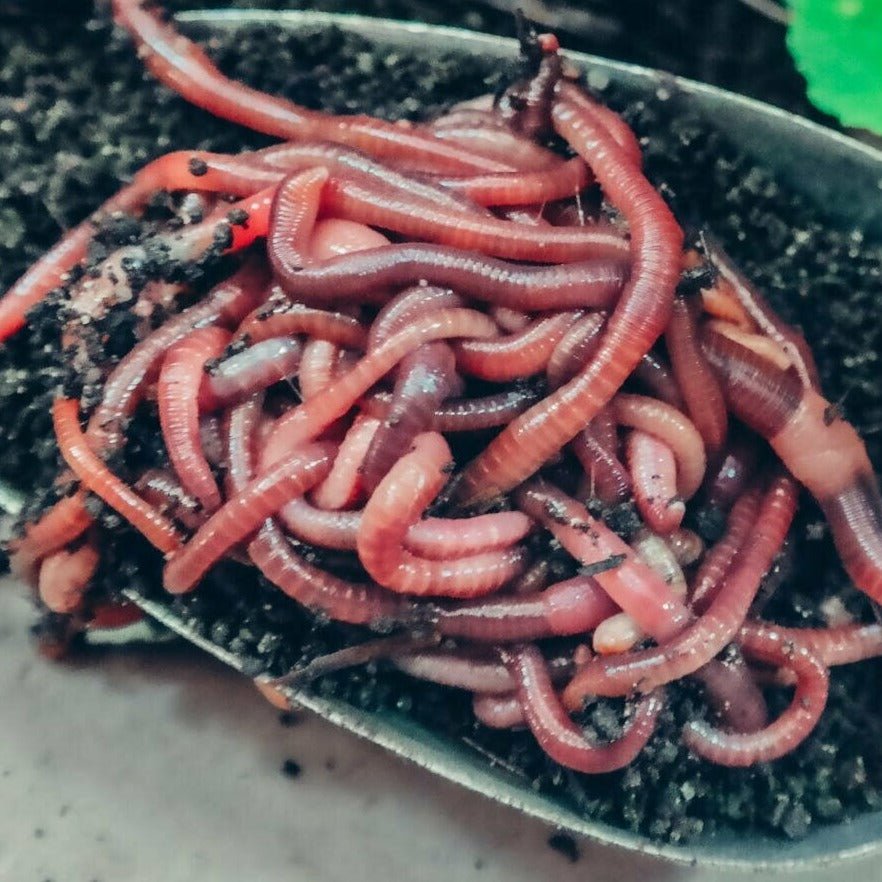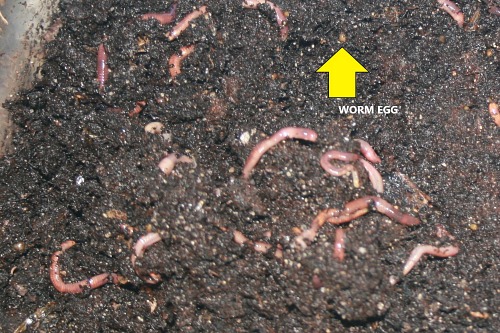Lake Hickory Bait: Trusted Supplies for Every Season of Fishing
Lake Hickory Bait: Trusted Supplies for Every Season of Fishing
Blog Article
Red Wigglers: The Unsung Heroes of Organic Waste Recycling
Red wigglers, or Eisenia fetida, offer as important agents in the organic waste recycling process, changing discarded materials into important vermicompost. Their effective malfunction of organic issue not just enhances dirt top quality yet likewise adds to sustainable waste administration methods. As the world progressively looks for solutions to combat waste accumulation and improve farming performance, recognizing the duty of these worms comes to be crucial. What devices permit them to thrive in garden compost atmospheres, and how can they be properly used in both domestic and business settings? Discovering these questions exposes the more comprehensive ramifications of vermicomposting in our ecological landscape.
What Are Red Wigglers?
The amazing resilience of red wigglers, clinically referred to as Eisenia fetida, emphasizes their crucial role in natural waste recycling. These tiny, reddish-brown earthworms are usually found in decaying raw material, such as compost heap and manure loads. Lake Hickory Bait. Unlike other earthworm varieties, red wigglers prosper in nutrient-rich environments and are extremely efficient at damaging down organic products, making them important for vermicomposting

(Red Wiggler Express)Along with their role in waste decrease, red wigglers add to dirt wellness by improving dirt framework and oygenation through their delving activities (Lake Hickory Bait). Their visibility in composting systems not just enhances disintegration prices however also advertises a lasting method to waste management, illustrating their significance in eco-friendly preservation initiatives
Benefits of Composting With Worms
Composting with worms, especially red wigglers, offers numerous benefits that boost both waste monitoring and soil health. These worms successfully damage down organic waste, converting it into nutrient-rich vermicompost that improves soil. This procedure speeds up decay, enabling a much faster recycling of kitchen area scraps and other natural products compared to traditional composting approaches.
Additionally, the vermicompost created by red wigglers is including beneficial microorganisms, which assist enhance dirt structure, oygenation, and dampness retention. This enhances the total health and wellness of plants, advertising strenuous development and raised yields in gardens and farming setups. Furthermore, using worms in composting reduces the manufacturing of greenhouse gases, such as methane, contributing to an extra sustainable waste administration system.

Just How to Beginning Vermicomposting
Developing a vermicomposting system is an uncomplicated process that can generate significant benefits for both waste administration and dirt enrichment. To start, pick an appropriate container, such as a plastic bin or wood box, with appropriate ventilation holes to guarantee appropriate air flow. The measurements should ideally be around 2 feet by 3 feet, permitting enough area for the worms to prosper.
Next, prepare bedding product, which can include shredded newspaper, cardboard, or coconut coir. This bed linens ought to be dampened to create an appropriate habitat for the worms. Once the bed linens is in area, present red wigglers (Eisenia fetida) right into the bin, usually around one extra pound of worms for every single square foot of surface.
Adhering to the placement of worms, include organic waste, such as fruit and vegetable scraps, coffee premises, and crushed eggshells. Avoid adding milk, meat, or oils, as these can create smells and bring in bugs. Ultimately, place the bin in a shaded, temperature-controlled area to maintain optimum conditions for worm activity. With these actions, you will properly initiate a vermicomposting system that adds to sustainable waste management and enhances your dirt.
Preserving a Healthy And Balanced Worm Bin
(Red Wiggler Express)Keeping a worm container prospering needs routine attention and like make certain the health and wellness of the red wigglers and the efficiency of the composting process. Proper upkeep starts with keeping track of the dampness levels; the bin ought to be damp but not waterlogged. An excellent guideline is to keep a consistency similar to a wrung-out sponge.
Oygenation is vital. Gently mixing the bed linen and food scraps every couple of weeks protects against compaction and makes sure that all worms have accessibility to oxygen. Furthermore, it is essential to feed the worms suitably. A well balanced diet of fruit and veggie scraps, coffee premises, and crushed eggshells ought to be supplied in small amounts to prevent overfeeding, which can bring about odors and parasites.
If the container comes to be also warm or cool, the worms might come to be worried. By carefully taking care of these factors, one can preserve a robust and effective worm container.
Influence on Sustainable Living
The effective upkeep of a worm bin not only benefits the wellness of red wigglers but likewise contributes substantially to sustainable living practices. By reusing organic waste, such as kitchen scraps and backyard particles, red wigglers assist divert significant quantities of product from landfills. This reduction in waste not just decreases greenhouse gas discharges yet also reduces the environmental concern connected with waste administration.
In addition, the spreadings generated by red wigglers work as a nutrient-rich natural fertilizer, boosting soil health and wellness and advertising plant growth. This natural option to chemical plant foods sustains sustainable agriculture and gardening practices, lowering reliance on synthetic inputs that can hurt ecological communities. Additionally, worm composting promotes understanding of waste monitoring, encouraging people and communities to embrace more lasting behaviors.

Verdict
In recap, red wigglers serve as essential contributors to natural waste recycling through their effective disintegration of natural products. By incorporating vermicomposting into waste administration methods, people and areas can considerably minimize waste while promoting environmental sustainability.
Report this page